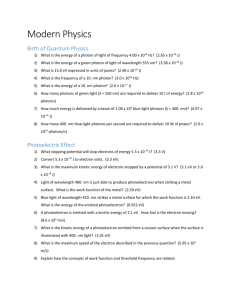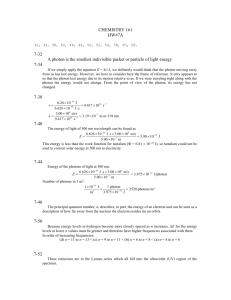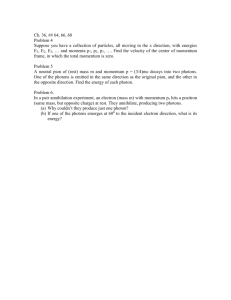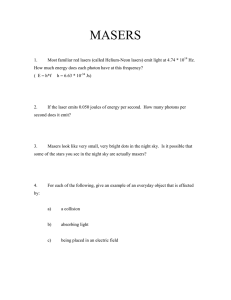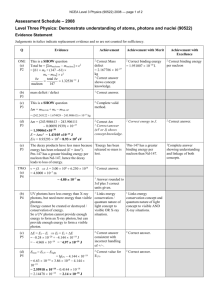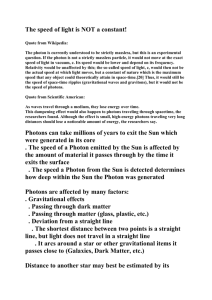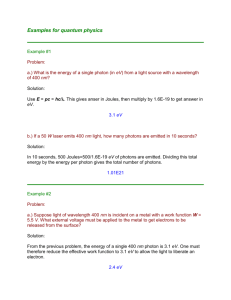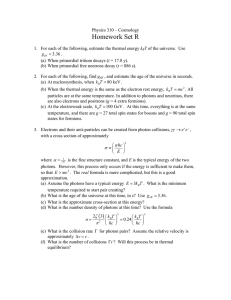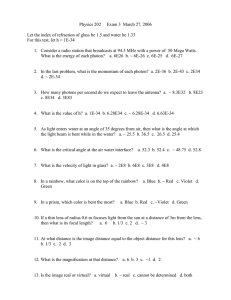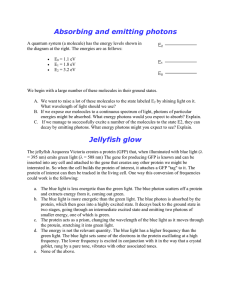Photons streaming from a lamp
advertisement
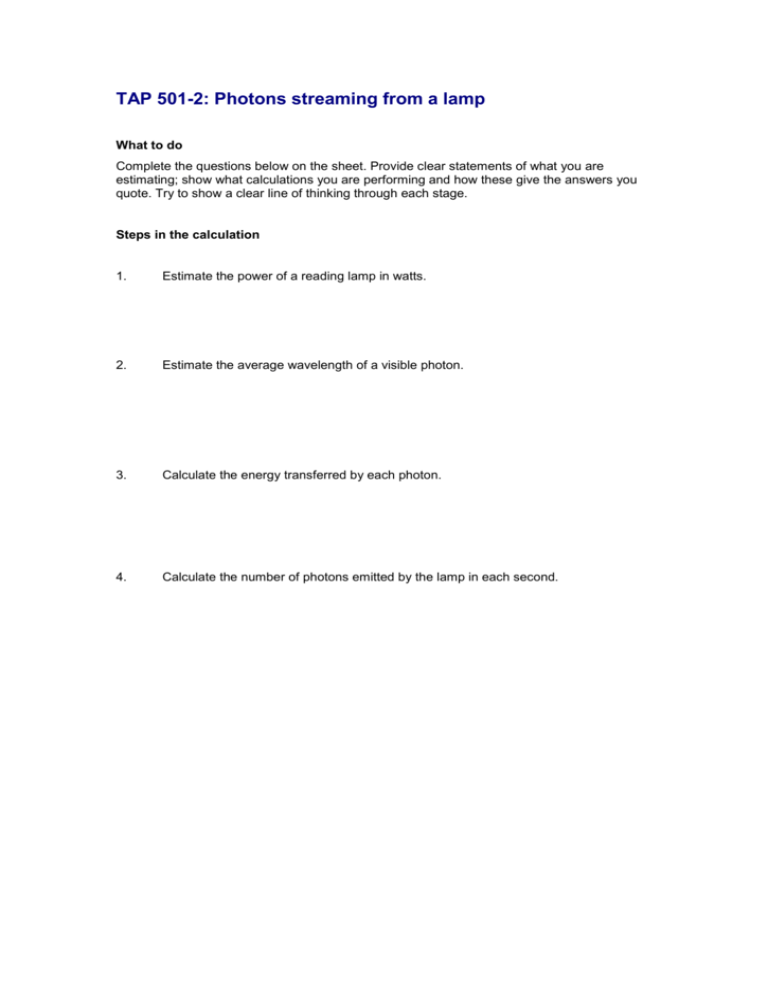
TAP 501-2: Photons streaming from a lamp What to do Complete the questions below on the sheet. Provide clear statements of what you are estimating; show what calculations you are performing and how these give the answers you quote. Try to show a clear line of thinking through each stage. Steps in the calculation 1. Estimate the power of a reading lamp in watts. 2. Estimate the average wavelength of a visible photon. 3. Calculate the energy transferred by each photon. 4. Calculate the number of photons emitted by the lamp in each second. Practical advice This question, or a substitute for it, needs to come early on in the discussion of photons to avert questions concerning our inability to be aware of single photons. However, single photon detectors are now used in astronomy etc. Alternative approaches This may be prefaced or supplemented by such a calculation performed in class. It is well done by linking to other such questions that yield large numbers. Social and human context Every time we meet a pervasive quantity like power it is useful to compare it to our place in the Universe (75 W or so as a useful power output over any length of time) and to compare developed and developing countries in this respect. Answers and worked solutions 1. P = 40 W 2. = 5 10 3. Calculate the frequency of the photons corresponding to this wavelength: f –7 m c 3 10 8 m s 1 5 10 7 m 6 1014 Hz. Now calculate the energy of each photon: E hf 6 10 34 J s 1 6 1014 Hz 4 10 19 J. 4. –1 Energy per second = 40 J s –19 Energy per photon = 4 10 J. energy per second photons per second energy per photon 40 J s -1 4 10 19 J 1 10 20. External reference This activity is taken from Advancing Physics chapter 7, question 20E
